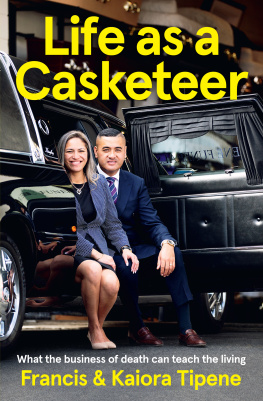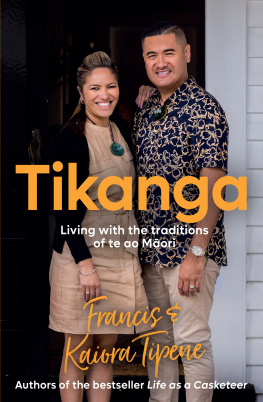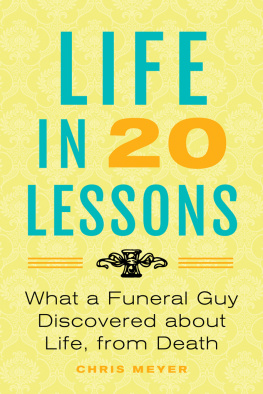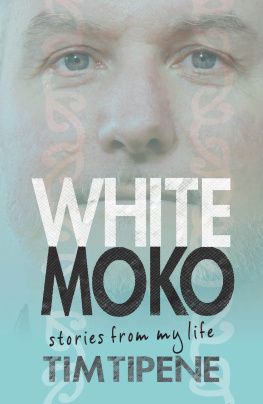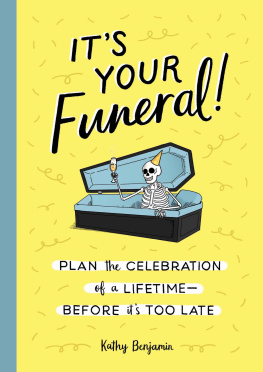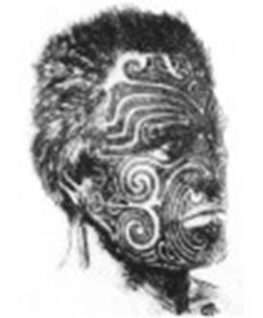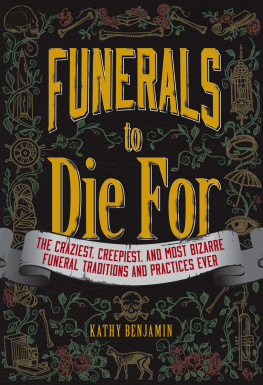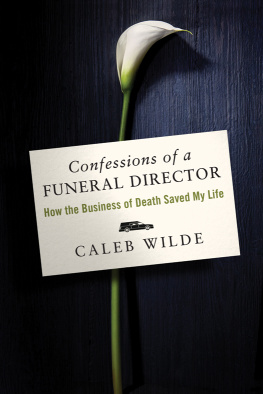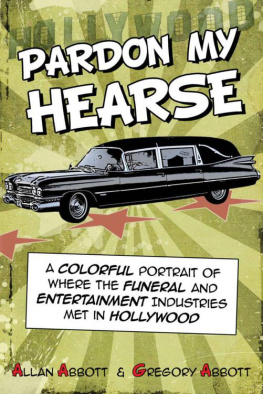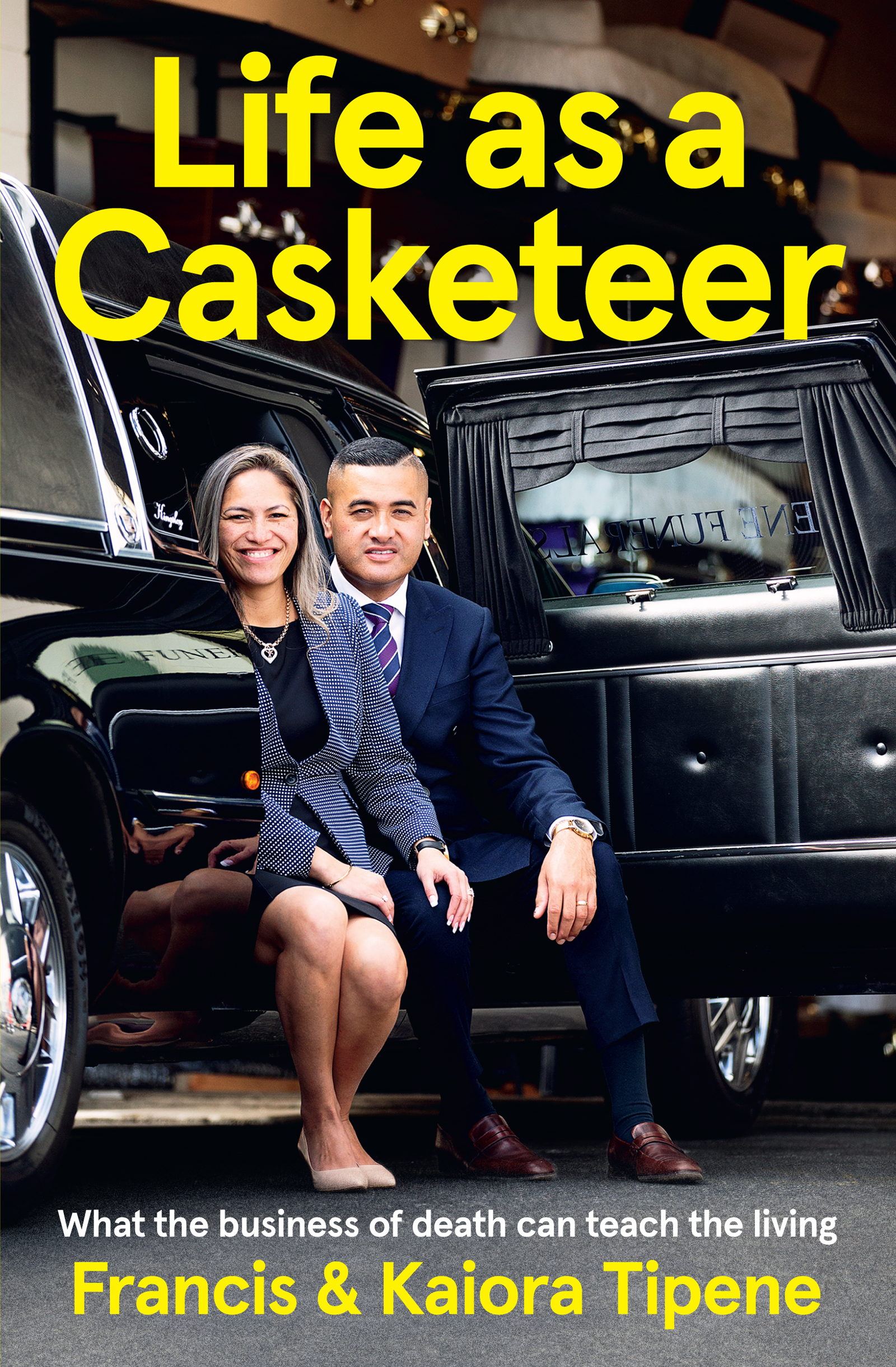CONTENTS
Guide
This book is dedicated to
Walter and Helen Tipene
and Hani and Ruana Murray
Ki te kore koutu mei kore hoki ko mua
If it werent for you, we wouldnt be here
WAIATA TANGI
Rimurimu, tere tere
E rere ki te moana.
E tere ana ki te ripo
I waho e.
Tirohia i waho r
E marino ana e.
Kei roto i ahau
E marangai ana e.
Kei te tio te huka
I runga o ng hiwi.
Kei te moe koromeke
Te wairua e.
Rite tonu t hanga
Ki te trairaka e
Waihoki t hanga
Te wairangi e.
Seaweed drifting, drifting,
floating on the ocean.
Drifting in the whirlpool,
out there.
When I look out there
it is so calm.
While within me
everything is storm-tossed.
The snow is biting cold
on the ridges.
And lying curled up asleep
is your spirit.
Your behaviour is like that
of the fantail,
in the same way, your restless spirit
upsets me greatly.
PEPEHA
FRANCIS
Ko Makora te maunga
Ko Rotokkahi te awa
Ko Whangap te moana
Ko Taiao te marae
Ko Ngtokimatawhaorua te waka
KAIORA
Ko Te Rangi niwaniwa te maunga
Ko Rangaunu te moana
Ko Pwheke te maunga
Ko Waimanoni te marae
Ko Mmari te waka
CONTENTS
Ko te tai tamatne, ko te tai i whakatria e Kupe ki te marowhara
The western sea, stirred up by Kupe at the casting off of his war belt
A LOT OF PEOPLE know me as that funeral director from TV. But when I was growing up, we didnt have a TV. Or the electricity to run one. Or a toilet. Or indoor running water.
Although I was born in 1983, I spent my first few years living like it was a century earlier.
I was raised in Pawarenga in Northland, mainly by my grandparents Walter and Helen Tipene, and Im so glad I was. It was an upbringing like very few people have these days. Everything we did was done the hard way, and it has meant I appreciate every single thing I have now.
Pawarenga is on the west coast of the Far North and very isolated. Its official population is... not many. But my familys roots there go back a long way. The closest big town is Kaitaia, which is sixty-three kilometres away. Its not very close. Its not very big, either.
But thats not where I started life. That was further south, in Auckland at St Helens Hospital. My mother, Helen Tipene, is Mori, and my father, Francis Muller, is of Tongan descent.
They were two young sweethearts much too young as far as my mums mother was concerned. Dad was twenty and Mum was just eighteen. When I arrived, my grandmother swooped down from Northland and told her daughter how it was going to be.
You cant take care of a baby at your age, said Nan. Give him to us and we will look after him.
Nan was and is our family matriarch and the biggest single influence on my life. She is very traditional in all things, a great upholder of tikanga, and the person we always run things past when were not sure. To this day, I might think I can get away with something, but suddenly Nan is there shaking her head: No, no, no, no. I love that she always does that. She keeps me grounded and stops my head getting too big.
And so I was handed over to my grandparents and taken north. I was a whngai kid a pretty common practice used by Mori families to make sure their children are brought up okay. Which I was.
Thanks to my being in that TV show, a lot of people know a bit about me but they often only know half the story. For instance, a lot of Tongan people who come in to arrange funerals know Im half Tongan, on my fathers side, and they ask why I am a Tipene not a Muller, so I have to explain to them about my Mori family and the whngai system.
I was given my Mori whnau surname at birth. Its on my birth certificate. Mum did the paperwork, although I think the name might have been my grandmothers idea. Whatever the reason, it was obviously out of my hands.
IT CANT HAVE BEEN EASY for Nan and Pop to take on a baby at their age. Although they would have been in their fifties, and that is young to be a grandparent these days, they had already started on a new life of their own.
Up until not long before I was born, they had been living in Auckland. Nan worked mainly as a dry-cleaner and Pop worked for the Power Board, but they sold their house and moved north to settle on our family land and build their house there. It was a very frugal life and money was short, which is why we went without so many things that other people take for granted.
Pop was a hardworking man who liked to stay in the background. We are quite different. Somehow, I have grown up comfortable with an audience and talking to big groups of people. Pop would never have done that. He was a quiet person, who didnt want to be any trouble to anyone. He would never ask for help with things, so when I was older, we had to work out what our grandparents needed and just go ahead and do it for them.
It was a simple existence. We had a cow for our milk Pop took care of that. And there was a bore at the top of the hill for our fresh water. So we had nearly everything we needed to make a cup of tea, apart from boiling the water.
For that, we had gas tanks. But we still had to be careful how much we used. At bath time I went first, then Nan, then Pop. That was fine then, but as Ive gotten older and looked back I feel a little differently about it. Fortunately, kids dont think like that, and I didnt mind at the time.
Thursday was benefit day, when we went to Kaitaia to do our shopping. We filled up the gas bottles and got kerosene so wed have light and heat at home. All I ever wanted was a pie and an ice cream. And maybe a Hubba Bubba bubble gum. That was Nan and Pops treat so simple, but I loved it and have never lost my taste for pies and ice cream.
For an extra special treat, we had a SodaStream machine at home. Regular fizzy drinks were too expensive, but the SodaStream brought much happiness to us all.
Nan and Pop were very religious. Pawarenga has a beautiful old church called St Gabriels that stands on a hill overlooking the harbour. We went to church a lot. It was my grandmothers hope that I would become a Catholic priest. That didnt happen. Quite the opposite, in fact, although I do spend a lot of time in churches now.
I didnt need to go to St Gabriels for my church experience. To this day, the inside of Nans house is like a church itself, with pictures of Mary everywhere you look. Nan loves Mary.
We werent one of those families that had regular prayers night and morning, but we did say grace, though not out loud. Pop took his hat off and made the sign of the cross, praying quietly to himself, and then he started eating. When we werent eating at home, Pop lifted his hat briefly then put it back on before a meal.
Because Pawarenga is very remote, the only other kids were a long way away, so I was pretty isolated from people my own age. I grew up to be a bit of a loner and different from other kids, because I had no one to copy.
I had to entertain myself and so did Nan and Pop. They played cards a lot, read magazines and did crosswords.
There was plenty of wide open space for me to play in. I liked being outdoors when I was allowed to be, but Nan was quite protective: Dont go out there... Its too cold... Youll get dirty.
Next page
